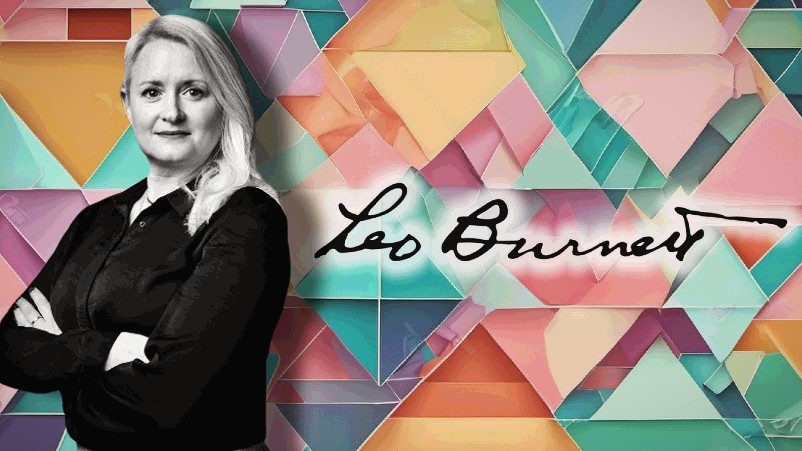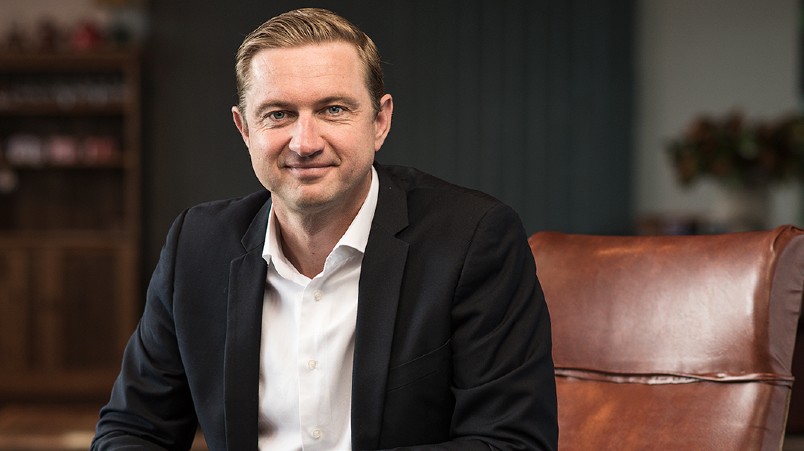No process junkie: New Leo Burnett boss says ‘agency runs itself’, claims Publicis ahead of rivals in consolidation and AI race

In the chair for two months, Leo Burnett Australia boss Clare Pickens is working on a plan to reinvigorate the agency's own brand as well as build those of its clients. She claims the broader network is ahead of holdco rivals when it comes to consolidating structures and back-ends – as well as AI capability in action – and aims to leverage that concentrated firepower within the in-market reposition. While other agency bosses privately admit that AI and automation efficiencies will crimp headcount, Pickens is not so sure.
What you need to know:
- Clare Pickens recently relocated from Amsterdam to take up the top job at Leo Burnett Australia, with her sights set on creating some “bold” work for the local market.
- Now two months into the role, Pickens sees an opportunity for Leo’s to reassert itself in market by tapping into modern market challenges – which thanks to Publicis Groupe’s connected model, she says the creative agency can deliver on.
- From her time working across other markets, she reckons the French holding company is well ahead when it comes to AI, and she ultimately sees the tech as a friend, not a threat, to creative talent. Roles will evolve, but Pickens doesn’t believe headcount is on the chopping block.
Smaller market, bigger opportunity
Clare Pickens landed at Leo Burnett Australia in April, taking up the top job almost ten months after it was left vacant by Emma Montgomery – she couldn’t stay away from the US market.
A British native, Pickens spent the last 15 years leading agency teams in the Netherlands. Her resume includes Wieden + Kennedy, Red & Co, and more recently, funky Amsterdam indie HERC.
She takes the helm at an agency that’s got its fair share of legacy in the Australian market – a point to which she’s well attuned. It’s part of what appealed to her about the role, along with what she saw as a remit for strategic freedom – the two sides of the coin she says she’s previously had to pick between at start-up or network agencies.
Creatively, she’s excited to dig down into single market work after spending much of her career running international campaigns out of Europe.
“When you're working on a global or a multi-market level, you're trying to bring multiple bits of consumer understanding into one insight … You'd be in charge of creating the big global campaign, and then you would give the playbook to the markets, and they would activate it,” said Pickens.
At the local level, she says, insights are tighter and so work can be bolder. The Bundy Wedding, for Pickens, is the perfect case study of what can be pulled off when the boundaries are pushed.
Building on legacy
Given that Leo Burnett Australia had been without a chief executive for 10-months when she joined the agency’s Sydney office in April, Pickens said the house was fairly well in order.
She credits that to an experienced executive leadership team (ELT), with chief strategist Catherine King, chief creative Andy Fergusson, and the agency's Sydney General Manager James Walker-Smith having “done a really phenomenal job of covering the gap”.
With the day-to-day running smoothly, Pickens has had the liberty of taking her time to get to know the agency’s talent and its clients, and “learn the lay of the land” (and the Australian market) to figure out how she can best support that ELT.
As she sees it, her job is to “create the vision, galvanise the team and then create a space for everybody to do what they're actually capable of doing and actually reach the potential that we have”. She’s not there to “optimise process”.
“You can easily get a bit weighed down in the day to day of ‘oh if we just tweak this process and that process’, but quite honestly, the agency runs itself very successfully.”
Playing with Leo’s positioning has been an early agenda item, to build on the agency’s legacy by tapping into the “market challenges” that are most relevant today. It’s a touch that seems to have been lost during a rather quiet few years at what was one of Australia’s buzziest creative powerhouses, previously landing itself in WARC’s top 10 creative agencies for the three consecutive years to 2016.
“When agencies talk about their positioning quite often, it can feel like a bunch of words on a page, and there's a very slight nuance between the different agency offerings. Fundamentally, we're all trying to promote the value of great strategic and creative thinking for problem solving. But there is something in the legacy, the human-centric way that Leo's tries to deliver on – helping business by helping people. That is really important and should be at the forefront of what we're doing and saying out in the market.”
There's a consolidation trend at play locally and globally, and as other legacy networks grapple with reshaping their model for the future, Pickens feels that Leo's and the broader Publicis group is “actually really a lot more fit for the evolution of where the industry is going to go”, and that will be the agency’s edge. The challenge is just to embed that message in Leo’s story.
“I think our work does speak for itself, but reminding people that [we're] a pretty safe pair of hands and you can trust us with your business because we've been doing this for a really long time [is also important]. But [at the same time] the solutions are fresh and agile and innovative, and we're backed by this network where we can tap into literally anything you want when you need it, without having to sort of create a huge additional work stream or partnership for our clients, because of the one P&L model.”
For Pickens, that model is what sets the network apart, allowing leaders to collaborate without fear for their own bottom line or fiefdom. “If Herd MSL is successful, if Digitas is successful, if Zenith is successful, I'm also successful as a result of that, because of the way that we work together."
Tech takeover
Australia is typically relegated as a market that follows cue from the US, and for good reason. But when it comes to the oncoming shifts driven by AI and automation, Pickens said geography hasn’t necessarily determined capability.
The tech is moving fast, but early commitments to AI from Publicis’ global chief, Arthur Sadoun, per Pickens, put Publicis' local teams ahead of what she’s seen at agencies “in other parts of the world”.
“I think AI is quite interesting, because every time there is a huge technological leap forward, we get very excited about it, then we kind of realise we don't know how to use it. Then we realise how to use it, maybe in the wrong way, and then we realise how to use it in the right way. And I think actually, Publicis is a bit further along on that journey, maybe the most, because we're already sort of putting it into practice in useful ways.”
By way of example, Pickens pointed to the group’s internal AI platform, Marcel, which has made way for a “closed loop brand cockpit” that drives efficiency “for certain clients”, and said Publicis is using AI for product innovation too – though wouldn't say what. Those leaps, per Pickens, have been made possible by partners and clients who are open to “leaning in”, despite some of the unknowns.
“The pace of innovation right now, it's very difficult to always be on top of everything. I think it's impossible to be able to make really, really finite recommendations about how to use these technologies, because we're all still learning, and we're all still experimenting and figuring out,” she added
Like many creatives, Pickens sees the tech as a facilitator, rather than “a replacement for the creative idea”.
“I still believe in the power of humans and our brains in that sense, especially when AI tools are learning from what exists already in the world, how are you going to have a truly unique idea through a component that's learning from what's already out there? We need human brains to create that. We need human brains to shepherd that and to be the brand voice.”
She’s also wary of AI tools and metrics that could lead to homogenised, formulaic creative outputs.
“There's a lot of tools where you see the ‘Testing metric says X’ – okay great, that's how we get to formulaic work,” she said. “There are obviously things that are important in [understanding] how a consumer is going to receive this piece of work, but we have to have the ability to break out of those testing metrics as well and go, ‘What is it going to make people feel? Amazing? Great’.”
On that basis, Pickens is of the view that AI’s impact will be to evolve skillsets, rather than slash headcount.
“People coming into the industry and into our line of work are going to come in with different skill sets, where they know using the tech as a tool is going to get to a different type of work, or it's going to get to work more quickly, or it's going to get certain things which are not the most creative or fun parts of the job out of the way,” she says.
“I think that's quite liberating, in a sense, because it allows you to focus in the areas where you want to be focusing.”
Whether those efficiencies will be a boon for creativity or for agency overheads – or fall somewhere in between – is yet to be seen.


